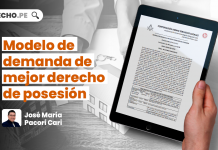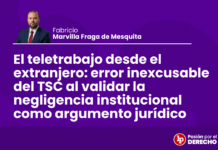Fundamentos destacados: 52. Sin embargo, en opinión del Tribunal, el presente asunto debe distinguirse del asunto Pretty antes citado. Al igual que el Tribunal Federal, considera oportuno señalar de entrada que el presente asunto no se refiere a la libertad de morir ni a la posible inmunidad de una persona que presta asistencia en un suicidio. El objeto de controversia en este caso es si, en virtud del artículo 8 del Convenio, el Estado debe garantizar que el demandante pueda obtener una sustancia letal, el pentobarbital sódico, sin prescripción médica, como excepción a la legislación, para suicidarse sin dolor y sin riesgo de fracaso. En otras palabras, a diferencia del asunto Pretty, el Tribunal de Primera Instancia observa que el demandante alega no sólo que su vida es difícil y dolorosa, sino también que, de no obtener la sustancia en cuestión, el propio acto del suicidio quedaría despojado de dignidad. Además, y de nuevo a diferencia del asunto Pretty, el demandante no puede ser considerado enfermo, en la medida en que no se encuentra en la fase terminal de una enfermedad degenerativa incurable que le impediría quitarse la vida (véase, a la inversa, la sentencia Pretty, antes citada, apartado 9).
[…]
56. Por lo que respecta a la ponderación de los intereses en conflicto en el presente asunto, el Tribunal de Justicia comprende el deseo del demandante de suicidarse de forma segura y digna y sin dolor ni sufrimiento innecesarios, en particular habida cuenta del elevado número de tentativas de suicidio que fracasan y que con frecuencia tienen graves consecuencias para las personas afectadas y para sus familias. Sin embargo, opina que la reglamentación establecida por las autoridades suizas, a saber, la exigencia de obtener una prescripción médica, persigue, entre otros, los objetivos legítimos de proteger a todos de decisiones precipitadas y evitar abusos y, en particular, garantizar que un paciente falto de discernimiento no obtenga una dosis letal de pentobarbital sódico (véase, mutatis mutandis, en relación con las restricciones al aborto, Tysiąc c. Polonia, nº. 5410/03, § 116, ECHR 2007-I).
57. Estas regulaciones son tanto más necesarias en el caso de un país como Suiza, donde la legislación y la práctica permiten un acceso relativamente fácil al suicidio asistido. Cuando un país adopta un enfoque liberal en este sentido, son necesarias medidas de aplicación adecuadas para dicho enfoque y medidas preventivas. La introducción de tales medidas también pretende evitar que las organizaciones que prestan asistencia al suicidio actúen de forma ilegal y en secreto, con riesgos de abuso significativos.
[Traducción LP]
52. In the Court’s opinion, however, the instant case is to be distinguished from the above-cited Pretty case. Like the Federal Court, it considers that it is appropriate to state at the outset that the instant case does not concern the freedom to die and possible immunity for a person providing assistance with a suicide. The subject of dispute in this case is whether, under Article 8 of the Convention, the State must ensure that the applicant can obtain a lethal substance, sodium pentobarbital, without a medical prescription, by way of derogation from the legislation, in order to commit suicide painlessly and without risk of failure. In other words, unlike the Pretty case, the Court observes that the applicant alleges not only that his life is difficult and painful, but also that, if he does not obtain the substance in question, the act of suicide itself would be stripped of dignity. In addition, and again in contrast to the Pretty case, the applicant cannot in fact be considered infirm, in that he is not at the terminal stage of an incurable degenerative disease which would prevent him from taking his own life (see, conversely, Pretty, cited above, § 9).
[…]
56. With regard to the balancing of the competing interests in this case, the Court is sympathetic to the applicant’s wish to commit suicide in a safe and dignified manner and without unnecessary pain and suffering, particularly given the high number of suicide attempts that are unsuccessful and which frequently have serious consequences for the individuals concerned and for their families. However, it is of the opinion that the regulations put in place by the Swiss authorities, namely the requirement to obtain a medical prescription, pursue, inter alia, the legitimate aims of protecting everybody from hasty decisions and preventing abuse, and, in particular, ensuring that a patient lacking discernment does not obtain a lethal dose of sodium pentobarbital (see, mutatis mutandis, with regard to restrictions on abortion, Tysiąc v. Poland, no. 5410/03, § 116, ECHR 2007-I).
57. Such regulations are all the more necessary in respect of a country such as Switzerland, where the legislation and practice allow for relatively easy access to assisted suicide. Where a country adopts a liberal approach in this manner, appropriate implementing measures for such an approach and preventive measures are necessary. The introduction of such measures is also intended to prevent organisations which provide assistance with suicide from acting unlawfully and in secret, with significant risks of abuse.
[Idioma Original]
CASE OF HAAS v. SWITZERLAND
(Application no. 31322/07)
In the case of Haas v. Switzerland,
The European Court of Human Rights (First Section), sitting as a
Chamber composed of:
Christos Rozakis, President,
Nina Vajić,
Anatoly Kovler,
Khanlar Hajiyev,
Sverre Erik Jebens,
Giorgio Malinverni,
George Nicolaou, judges,
and Søren Nielsen, Section Registrar,
Having deliberated in private on 14 December 2010, Delivers the following judgment, which was adopted on that date:
PROCEDURE
1. The case originated in an application (no. 31322/07) against the Swiss Confederation lodged with the Court under Article 34 of the Convention for the Protection of Human Rights and Fundamental Freedoms (“the Convention”) by a Swiss national, Mr Ernst G. Haas (“the applicant”), on 18 July 2007.
2. The applicant was represented by Mr P.A. Schaerz, a lawyer practising in Uster (Canton of Zürich). The Swiss Government (“the overnment”) were represented by their Agent, Mr F. Schürmann, Head of the Human Rights and Council of Europe Section at the Federal Office of Justice.
3. Relying on Article 8 of the Convention, the applicant complained that his right to decide how and when to end his life had been breached.
4. By a decision of 20 May 2010, the Court declared the application admissible.
5. The Government filed further observations on the merits (Rule 59 § 1 of the Rules of Court). In addition, third-party comments were received from Dignitas (Article 36 § 2 of the Convention), a Swiss private-law association whose aim is to ensure that its members are able to live and to die with dignity.
[Continúa…]
![El principio del doble conforme: si dos instancias están de acuerdo totalmente en una decisión ya no existe motivo para seguir dilatando el litigio innecesariamente [Casacion 2485-2023, Ica]](https://img.lpderecho.pe/wp-content/uploads/2025/10/MAZO-BIBLIOTECA-LPDERECHO-218x150.jpg)
![Falta de licencia para conducir no genera, «per se», responsabilidad penal en un accidente de tránsito: Si bien el procesado no tenía licencia, también lo es que ello no fue un factor que contribuyó al accidente, toda vez que manejó dentro de los límites permitidos y realizó maniobras posibles para evitar el accidente [Apelación 287-2024, Apurímac, f. j. 13.26]](https://img.lpderecho.pe/wp-content/uploads/2024/04/palacio-de-justicia-fachada-pj-LPDerecho-218x150.jpg)

![[VIVO] Conferencia magistral sobre proceso especial contra altos funcionarios. Llena el formulario para recibir las diapositivas](https://img.lpderecho.pe/wp-content/uploads/2026/02/BANNER-DELIA-ESPINOZA-LPDERECHO-218x150.jpg)
![Sí procede inscribir resolución judicial aunque, por su antigüedad, los nombres del juez y del auxiliar sean ilegibles; la autenticidad se garantiza si el nombre del juzgado es legible y si la resolución fue remitida por el juez actual a cargo del juzgado [Resolución Resolución 0388-2026-SUNARP-TR, ff. jj. VI.4-VI.5]](https://img.lpderecho.pe/wp-content/uploads/2024/03/tribunal-registral-LPDerecho-218x150.jpg)
![Se vulnera el derecho a la motivación si el fiscal superior no se pronuncia sobre todos los agravios invocados en el recurso de elevación (principio de congruencia recursal) [Exp. 01574-2024-PA/TC, f. j. 10]](https://img.lpderecho.pe/wp-content/uploads/2023/03/tribunal-constitucional-fachada-exterior-tc-1-LPDerecho-218x150.png)

![Ley Orgánica del Registro Nacional de Identificación y Estado Civil (Ley 26497) [actualizada 2025]](https://img.lpderecho.pe/wp-content/uploads/2025/05/Ley-organica-del-registro-nacional-de-identificacion-y-estado-civil1-LPDERECHO-218x150.jpg)













![[VIVO] Clase modelo Estándar de prueba en los procesos de prescripción adquisitiva. Llena el formulario para recibir las diapositivas](https://img.lpderecho.pe/wp-content/uploads/2026/02/CLASE-MODELO-FORT-NINAMANCCO-BANNER-218x150.jpg)

![¿Qué régimen le corresponde a los inspectores municipales CAS o 276? [Informe Técnico 000502-2025-Servir-GPGSC]](https://img.lpderecho.pe/wp-content/uploads/2024/05/Servir-CAS-LPDerecho-218x150.jpg)
![Trabajadores con licencia sin goce de haber pueden recibir beneficios de la negociación colectiva [Informe Técnico 000314-2025-Servir-GPGSC]](https://img.lpderecho.pe/wp-content/uploads/2025/03/SERVIR-LPDERECHO-218x150.jpg)


![JNE establece que personas con sentencia condenatoria pueden postular a la presidencia de la República al cumplirse 10 años de cumplida la pena, siempre que no tengan pendiente la reparación civil y hayan obtenido la declaración judicial de rehabilitación [Resolución 0085-2026-JNE, 2.21-2.24]](https://img.lpderecho.pe/wp-content/uploads/2026/02/BANNER-ARTICULO-CONSTITUCIONAL-19-218x150.jpg)

![Reglamento de la Ley que habilita la billetera digital para percibir el pago de sueldos y beneficios laborales [Decreto Supremo 011-2026-EF]](https://img.lpderecho.pe/wp-content/uploads/2022/10/yape-plin-LPDerecho-218x150.jpg)
![Revocan multa que se le impuso a abogado por recusar a jueza luego de que ella se molestara y le cortara el micro solo porque el letrado le pidió que el testigo no presencie la declaración del acusado [Exp. 03468-2023-6-1826-JR-PE-23]](https://img.lpderecho.pe/wp-content/uploads/2025/07/JUEZ-APAGA-AUDIO-AUDIENCIA-LPDERECHO-218x150.jpg)
![JNE confirma que congresista infringió neutralidad al promocionar campañas médicas gratuitas con un banner de su despacho parlamentario, al lado del símbolo de su partido político [Resolución 0171-2026-JNE]](https://img.lpderecho.pe/wp-content/uploads/2026/02/Alejandro-Aurelio-Aguinaga-Recuenco-LPDerecho-218x150.jpeg)
![Código de Responsabilidad Penal de Adolescentes [actualizado 2026]](https://img.lpderecho.pe/wp-content/uploads/2024/08/CODIGO-DE-RESPONSABILIDAD-PENAL-DE-ADOLESCENTES-DECRETO-LEGISLATIVO-1348-ACTU-LPDERECHO-218x150.jpg)

![Ley de Delitos Informáticos (Ley 30096) [actualizada]](https://img.lpderecho.pe/wp-content/uploads/2024/08/ley-de-delitos-informaticos-ley-30096-actualizada-LPDERECHO-218x150.jpg)
![Código Civil peruano [actualizado 2026]](https://img.lpderecho.pe/wp-content/uploads/2024/05/VENTA-OFICIAL-CODIGO-CIVIL-2024-LPDERECHO-218x150.jpg)
![Código Procesal Penal peruano [actualizado 2026]](https://img.lpderecho.pe/wp-content/uploads/2024/02/VENTA-CODIGO-PENAL-BANNER-POST-TAPA-DURA-LPDERECHO-218x150.jpg)








![[VÍDEO] ¿Quieres postular a la Fiscalía? Estas son las preguntas que hacen en las entrevistas](https://img.lpderecho.pe/wp-content/uploads/2021/10/postular-fiscalia-preguntas-entrevista-LP-218x150.jpg)

![EXP. N.° 0022-2009-PI/TC LIMA GONZALO TUANAMA TUANAMA Y MÁS DE 5000 CIUDADANOS SENTENCIA DEL TRIBUNAL CONSTITUCIONAL En Lima, a los 09 días del mes de junio de 2010, el Tribunal Constitucional en sesión de Pleno Jurisdiccional, con la asistencia de los magistrados Mesía Ramírez, Beaumont Callirgos, Vergara Gotelli, Landa Arroyo, Calle Hayen, Eto Cruz y Álvarez Miranda, pronuncia la siguiente sentencia con los fundamentos de voto de los magistrados Vergara Gotelli y Landa Arroyo, que se agregan. ASUNTO Demanda de Inconstitucionalidad interpuesta por Gonzalo Tuanama Tuanama, en representación de más de 5000 ciudadanos contra el Decreto Legislativo N.° 1089. DEMANDA Y CONTESTACIÓN a) Demanda contra el Decreto Legislativo N.° 1089, que regula el Régimen Temporal Extraordinario de Formalización y Titulación de Predios Rurales Con fecha 01 de julio de 2009, se interpone demanda de inconstitucionalidad contra el Decreto Legislativo N.° 1089, que regula el Régimen Temporal Extraordinario de Formalización y Titulación de Predios Rurales, publicada en el diario oficial El Peruano el 28 de junio de 2008. Los demandantes refieren que “'sin entrar al fondo del contenido de la norma”, ésta fue promulgada sin efectuar ninguna consulta previa e informada a los pueblos indígenas, tal como lo ordena el Convenio 169 de la Organización Internacional De Trabajo (OIT), afectándose con ello los derechos fundamentales de los pueblos Indígenas, como el derecho a la consulta previa y el derecho colectivo al territorio ancestral, establecidos en los artículos 6, 15, 17 del mencionado convenio. De igual forma, expresan que no se tomaron en cuenta los artículos 19, 30 y 32 de la Declaración de las Naciones Unidas sobre los Derechos de los Pueblos Indígenas (DNUDPI) aprobado por la Asamblea General de la Organización de Naciones Unidas. Alegan que con dicha norma se afectan otros derechos establecidos en el Convenio N.° 169, como el derecho sobre las tierras de los pueblos indígenas (artículos 13 al 19), en el considerando que no se tomaron en cuenta medida que garanticen la protección de sus derechos de propiedad y posesión. Refieren que se afecta también el derecho a la libre determinación de las comunidades nativas, previsto en el artículo 17 del Convenio, que declara el respeto de sus formas tradicionales de transmisión de sus territorios. Por último, alegan que se estaría vulnerando lo previsto en el artículo 19 del Convenio en cuanto se afecta el derecho al desarrollo de políticas agrarias adecuadas para los pueblos indígenas. [Continúa...] Descargue la resolución aquí](https://img.lpderecho.pe/wp-content/uploads/2023/01/Logo-LP-con-fondo-guinda-LPDERECHO-1068x561.png)


![Si el interesado solicita la actuación de medios de investigación al borde del fin de la investigación preparatoria y no se trata de una obtención, identificación o ubicación obtenida en último momento y por causas no imputables a él, ya no será posible su actuación [Apelación 320-2024, Apurímac]](https://img.lpderecho.pe/wp-content/uploads/2025/10/MAZO-LIBROS-BIBLIOTECA-LPDERECHO-218x150.jpg)

![Declaran fundado recurso de queja por denegatoria de casación de Melissa Klug y ordenan que se eleve el expediente principal a sala suprema [Queja por denegatoria de casación 1944-2025, Lima]](https://img.lpderecho.pe/wp-content/uploads/2024/06/melisa-l%C2%BFklug-y-jerfferson-farfan-LPDERECHO-100x70.jpg)

![Código Penal peruano [actualizado 2026]](https://img.lpderecho.pe/wp-content/uploads/2024/05/VENTA-CODIGO-PENAL-LPDERECHO-100x70.jpg)



![Reglamento de la Ley que habilita la billetera digital para percibir el pago de sueldos y beneficios laborales [Decreto Supremo 011-2026-EF]](https://img.lpderecho.pe/wp-content/uploads/2022/10/yape-plin-LPDerecho-100x70.jpg)
![El principio del doble conforme: si dos instancias están de acuerdo totalmente en una decisión ya no existe motivo para seguir dilatando el litigio innecesariamente [Casacion 2485-2023, Ica]](https://img.lpderecho.pe/wp-content/uploads/2025/10/MAZO-BIBLIOTECA-LPDERECHO-100x70.jpg)







![La integridad física presupone la conservación del funcionamiento y, en general, la salud del cuerpo; en ese sentido, los actos de libre disposición del cuerpo solo son admisibles ante un estado de necesidad, razón médica o motivos humanitarios [Exp. 2333-2004-HC/TC, f. j. 2.1]](https://img.lpderecho.pe/wp-content/uploads/2023/01/Logo-LP-con-fondo-guinda-LPDERECHO-324x160.png)